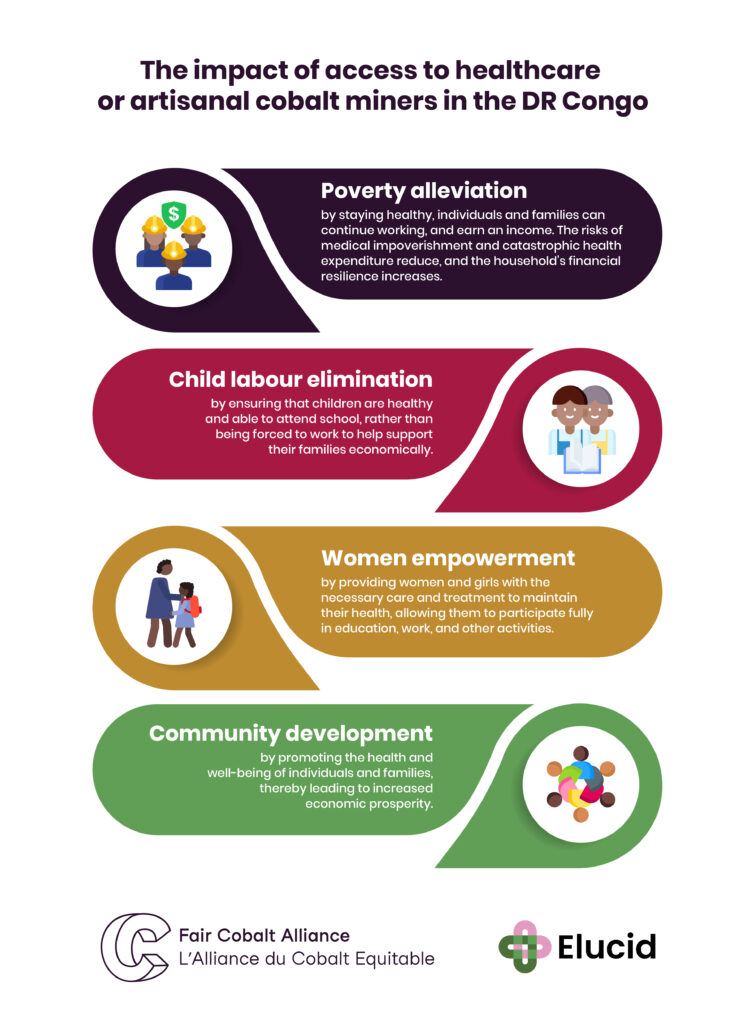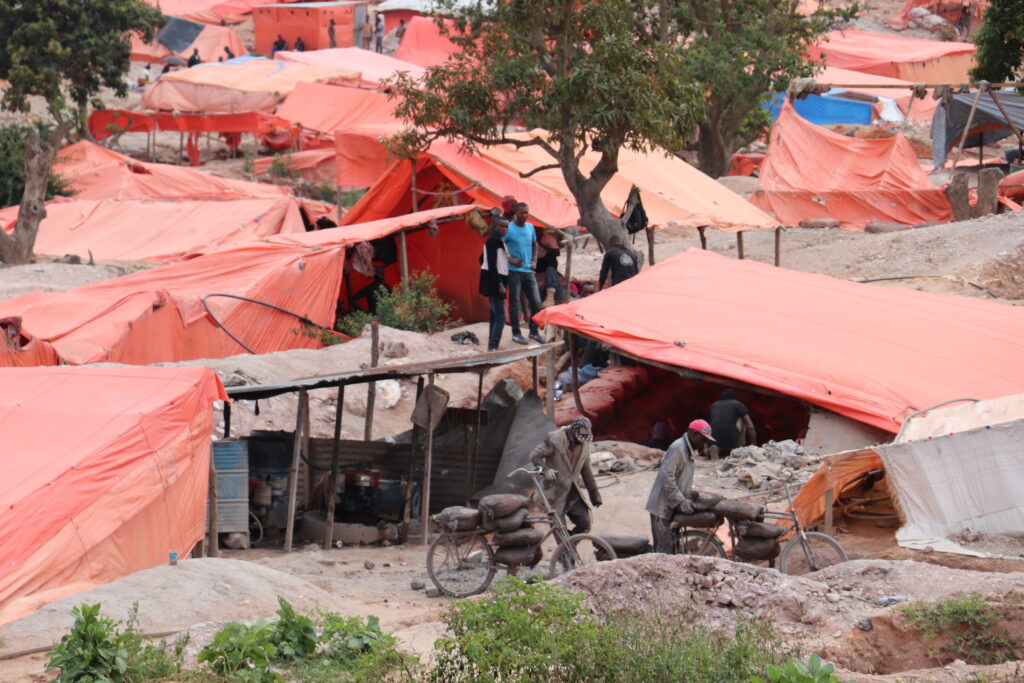How to provide access to healthcare to artisanal cobalt miners in the DR Congo

Guest Authors
View ProfileOther posts by
Guest Authors:
 In this guest blog post, Dr. Julius Emmrich, co-founder of Elucid Social, shares Elucid’s work on reducing financial barriers to healthcare in agri supply chains and the replication of this approach to the artisanal mining sector in the DR Congo.
In this guest blog post, Dr. Julius Emmrich, co-founder of Elucid Social, shares Elucid’s work on reducing financial barriers to healthcare in agri supply chains and the replication of this approach to the artisanal mining sector in the DR Congo.
Access to healthcare is a human right.
In sub-Saharan Africa, where less than 10% of the population has access to health insurance, people are often forced to forgo care as they cannot afford the costs. The World Health Organization estimates that annually over 100 million people are pushed into extreme poverty because of health-related expenses, and 1.6 million die because they cannot afford care.
My co-founder, Dr Samuel Knaussl, and I, both medical doctors with over a decade of experience in Sub-Saharan Africa, established Elucid Social to address this issue with the conviction that global supply chains can become the driving force for positive impact.
We’ve partnered with researchers, data specialists, and sustainability experts to build a digital platform that focuses on affordable healthcare access. Once enrolled, beneficiaries and their families can seek care at one of the partnering healthcare providers. This not only improves health access but also enables companies to comply with new human rights reporting regulations. Through the platform, we collect and analyze health and socio-economic data to evaluate social risks and impacts. To date, our technology counts over 350,000 beneficiaries in Sub-Saharan Africa.
Improved access to healthcare leads to better health outcomes as individuals are able to receive the medical attention they need in a timely manner. The benefits of healthcare access extend far beyond this as it also plays a crucial role in addressing significant social risks in supply chains, including:

In the context of artisanal mining, providing healthcare coverage is of even greater importance as the health risks faced by workers are extremely high. Artisanal miners work in hazardous conditions that can have severe impacts on their health. The primary health hazards of artisanal mining (ASM) include:
- Severe physical health hazards and death: The lack of safety equipment and extreme working conditions lead to falls from heights, crush injuries from cave-ins, lacerations, and amputations. Drowning and hypothermia caused by underwater mining activities are also frequent.
- Dust inhalation diseases: Miners are prone to respiratory issues because of the inhalation of dust while tunneling and crushing ore. The dust contains silica, which can lead to the development of silicosis. This condition can decrease pulmonary function, as well as increase the risk of tuberculosis and lung cancer.
- Accidents-related to explosive and noise-induced hearing loss: Miners are exposed to levels of noise far above acceptable levels from machinery and blasting, which can lead to hearing loss, as well as cognitive and behavioral disabilities.
- Birth defects: Cobalt exposure can damage DNA. In the DR Congo, there is evidence suggesting that birth defects in children might be connected to cobalt and copper mining.
- Multiple organ damage: Exposure to toxic substances can have severe health effects, including damage to the pulmonary, hematological, endocrine, and nervous systems, and even death. For instance, arsenic, released from mining and processing is a known carcinogen.
- Infectious disease: Mining communities face high risks of contracting infectious diseases, such as malaria, HIV/AIDS, and tuberculosis.
More information on the health hazards faced by artisanal miners can be found here.
In conclusion, the human cost of our reliance on cobalt is too high. It’s time for companies to take responsibility and improve supply chain transparency and access to healthcare for artisanal miners in the DR Congo. By doing so, we can work towards a future where the miners who extract the minerals that power our technology are no longer forced to choose between their health and their livelihood.

Artisanal miners work long hours underground, exposed to above-average noise levels and dust, on top of the consistent risk of shaft collapse due to the uncertain structural integrity of their pits. Access to affordable and reliable healthcare is not only a right but necessary to prolong the lives of this often neglected community of mineral producers.
Why did Elucid Social join the FCA?
As a company that is dedicated to improving access to healthcare and reducing human rights risks in the supply chain, we see joining the Fair Cobalt Alliance (FCA) as a natural next step in our mission.
We recognize that in order to truly make an impact, it takes a collective effort from all stakeholders involved in the cobalt supply chain. As part of the FCA, we are committed to working towards fair and responsible sourcing of cobalt, and we are excited to be part of the solution.
As we work to scale a proven concept into the ASM cobalt space, your help is needed! We are looking for corporate and donor partners who are interested in joining us to pilot the application of our platform in collaboration with the FCA.
If you are interested in joining us, please reach out to us to learn more about the details of the project and how you can take part in the effort. We are eager to hear from you and are excited to build a strong partnership together.
Thank you for your interest and looking forward to getting in touch!
Dr Julius Emmrich
![]()


